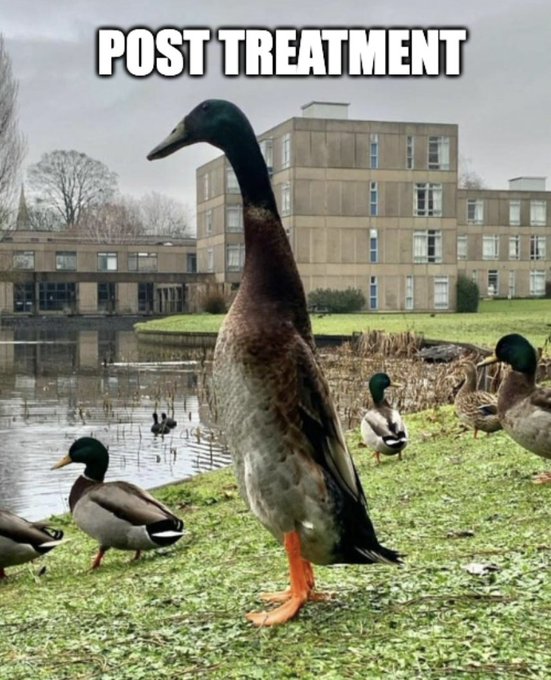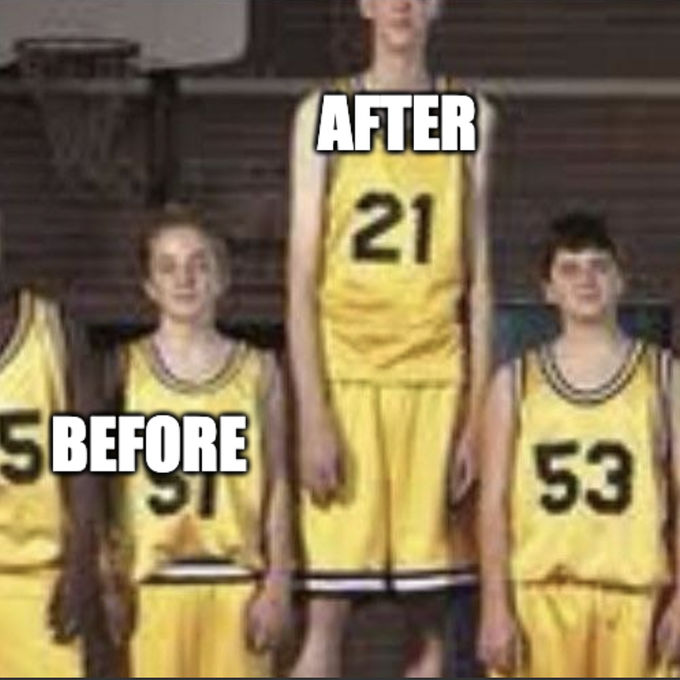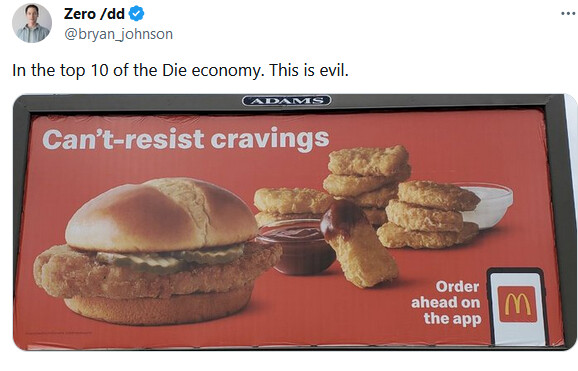Ludovic
#931
This is a recent Bryan Johnson post on X;
I injected Botox into my penis. It increases penis length by 1 cm. It also improves: + erection hardness + peak systolic velocity + end diastolic velocity + sexual health satisfaction Therapy was built on a double-blind randomized placebo-controlled prospective comparative study conducted involving 70 patients with ED refractory to PDE5Is. My penile function is optimal (EHS 4/4 and IIEF 25/25). We are testing whether an intervention that showed positive outcomes with ED will enhance performance. This therapy is normally reserved for those that do not respond to PDE5is and shockwave. However there is some theoretical basis that it may enhance the tissue rejuvenation effects of shockwave therapy, otherwise by itself it has unclear long term safety or efficacy. Process: + A tourniquet was applied at the base of the penis, the treatment dose (100 units of BoNT-A in 2 ml of saline) was distributed along 4 points, right and left distal and proximal shaft using a 23G insulin syringe. + The solution was injected into 4 different injection sites 1 inch proximal to corona and 1 inch distal to pubo-penile junction at right and left cavernosa, respectively. Following injection, a fine massage was applied to the injection sites for 5 min and the band was removed after 20 min.
Post vertalen


5:20 p.m. · 31 jan. 2024
·
I appreciate his extreme openness, he get’s a lot of negative feedback…
2 Likes
Using Botox is in my view something that is not repairing the body’s ability to maintain itself, but instead a cosmetic crutch.
2 Likes
L_H
#933
I don’t think it adds enough length to use it as a crutch.
9 Likes
Rapamycin News: come for the longevity, stay for the comedy & humor 
Seriously - people here make me smile or laugh almost every day.
5 Likes
medaura
#936
His penis needs to file a restraining order against him. That intervention is seriously demented. Holy shit!
2 Likes
SNK
#937
Clearly he told the world he has size anxiety 

1 Like
A_User
#938
I found this video interesting of someone on pretty much blueprint diet. She talked with a dietitian and recommended some changes in her diet which she did. Dietitian is much more qualified than nutritionists, which I didn’t know…
-
Her calories were way too low. 1700 → 2200 kcal for maintenance (1900 for cutting calories if goal).
-
Her protein was too low, based on what she read on internet that 0.8 g / kg is baseline, the dietitian recommended 1.5 g / kg of protein. She increased lupini beans (lower carb), and protein powder.
-
She wasn’t taking enough B12, the dietician recommended 1000 mcg, 3 times a week.
-
She wasn’t taking Vitamin D3 because she thought she was in the sun all the time, but she really isn’t and uses sunscreen, which is good. She started taking 50 mcg (2000 iu) of Vitamin D3 a day. She started to feel much happier after starting this.
-
The dietitian recommended variety. For example, if she ate kale in smoothie one day, maybe switch up to spinach another day. To get different plants and benefits from them.
Anyway lots of interesting stuff. And she did lose strength and muscle mass in leg press by about -4% previously while on blueprint for 90 days, if I remember correctly. The higher protein and calories will probably help with this.
6 Likes
A_User
#939
I feel like there’s a weird chasm between Bryan - and many other people.
The Holy War he’s waging on McDonald’s now, calling craving advertisement etc, Evil…

What is really happening here? It is the pleasure economy - not the die economy. People enjoy that food, a lot.
The real problem is really about not focusing on happiness, including long term happiness. For many, this might involve taking drugs to lower their cholesterol, or drugs that help them lose weight by reducing their appetite.
People aren’t dropping dead from eating McDonalds or any fast food. The problem is mostly calorie balance, eating too many calories. And not taking drugs! For example, statins, SGLT2i, BP lowering meds. People aren’t even adherent to their own medications.
The real problem is the lack of longevity, and healthspan drugs, and so forth. Not refined wheat, oil, chicken, sodium…
“Charismatic leaders ought to come with a warning label: May be dangerous to your health” - Frank Herbert.
This type of thinking can prevent people from focusing on what matters most.
Anyway how I am approaching diet from now on, I’ll eat whatever I want (aka Warren Buffett), take longevity/healthspan drugs, watch calories etc. But try to focus meals towards the start of the day to avoid high serum sodium levels during night and dehydration.
2 Likes
That seems reasonable. If I wasn’t trying to lose weight, I would be eating fast food all day long along with my statins, acarbose and fiber 
2 Likes
scta123
#941
However, human bodies are not simple; they are complex systems that do not always behave rationally. Human biology is far more intricate than the simplistic notion of “calories in - calories out” and the idea of regulating biomarkers solely with medicines.
4 Likes
Nutrition science is too vague in regards to what is actually the best kind of diet. Until that is settled, quality of life matters more.
1 Like
scta123
#943
While I occasionally indulge in McDonald’s as a guilty pleasure, I wouldn’t consider it quality by any definition of the term.
2 Likes
“People aren’t dropping dead from eating McDonald’s”
If you’ve never seen it go watch [Super Size Me Super Size Me - Google Search](Super Size Me Super Size Me - Google Search).
4 Likes
A_User
#945
I have seen it, I put it on every now and then when I’m enjoying some McDonald’s just for some entertainment.
The documentary Fat Head is good one also and an answer, but with a twist, where the person controls their calories and only eats fast food, unlike Super Size Me who ate 5000 kcal a day, and well… guess the results.
essexaid
#946
Doesn’t Naughton use this film to try denying the “lipid hypothesis?” Given your many excellent posts about cholesterol I’m a bit surprised you would like this.
3 Likes
A_User
#947
I didn’t pay much attention to the boring parts. It does give a view into a specific type of low carb ideology.
Do you have a link to a scientific paper that disproves CICO?
And why you can’t regulate biomarkers solely with medicines?
scta123
#948
I was referring to the complexity of nutrition. Macronutrients, micronutrients, antinutrients, prebiotics, probiotics, fiber etc.
How do you know which biomarkers are associative and which causative?
1 Like
A_User
#949
With randomized trials and mendelian randomization…
scta123
#950
All of that is just an estimate based on statistics. It’s a bit oversimplified, but it does help us understand the complexity of the human body.
Consider diseases like ASCVD or cancer. Despite spending billions and engaging the brightest scientific minds, we’re still struggling to fully understand these illnesses, let alone find cures or prevent them.
2 Likes
A_User
#951
What do you mean with estimate based on statistics?
I don’t want to argue about ASCVD prevention, it’s beating a dead horse at this point.